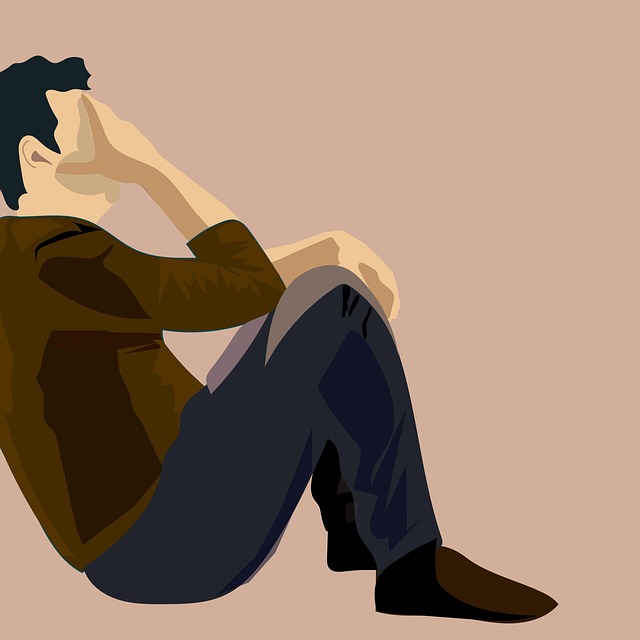Depression, a complex mental health issue, requires personalized treatment plans. Early recognition of symptoms like persistent sadness and changes in appetite is key. Diagnosis involves healthcare professionals evaluating symptoms and medical history. Major depressive disorder is confirmed with at least five symptoms lasting over two weeks. Effective depression treatment programs include CBT, IPT, psychodynamic therapy, medication management, mindfulness, yoga, exercise, and lifestyle changes. Tailoring these approaches to individual needs empowers long-term recovery through psychotherapy, healthy habits, support groups, and accessible resources.
Depression is a prevalent mental health condition, but managing it effectively is achievable with the right strategies. This comprehensive guide explores various aspects of depression management plans, from understanding key symptoms and diagnosis to effective therapy approaches and lifestyle modifications. Discover tailored depression treatment programs, including psychotherapy options, and learn how to create a personalized plan for optimal recovery. Uncover valuable resources and professional help available for those seeking to overcome depression.
Understanding Depression: Symptoms and Diagnosis

Depression is a common yet complex mental health condition that significantly impacts an individual’s daily life and overall well-being. It goes beyond mere sadness or temporary mood swings; depression treatment programs aim to address its profound effects on thoughts, feelings, and behaviors. Recognizing the symptoms is crucial in seeking help. Common indicators include persistent feelings of sadness, loss of interest in activities once enjoyed, changes in appetite and sleep patterns, fatigue, difficulty concentrating, and in severe cases, recurrent thoughts of death or suicide.
Diagnosing depression involves a comprehensive evaluation by qualified healthcare professionals. This typically includes a detailed discussion about symptoms, medical history, and mental health assessments to rule out other conditions. A diagnosis of major depressive disorder is made when an individual experiences at least five of these symptoms for at least two weeks, affecting their ability to function in daily life. Early intervention and appropriate depression treatment programs are vital to managing the condition effectively.
Types of Depression Treatment Programs

When it comes to managing depression, there’s a variety of effective treatment programs available. These programs are tailored to address the unique needs and severity of individual experiences with depression. One common approach is depression treatment programs focused on psychotherapy, which includes various therapeutic modalities such as cognitive-behavioral therapy (CBT), interpersonal therapy (IPT), and psychodynamic therapy. CBT, in particular, has been extensively researched and proven effective for many people dealing with depression by helping them identify and change negative thought patterns and behaviors.
Additionally, depression treatment programs may incorporate medication management, where healthcare professionals prescribe antidepressant medications to help balance brain chemicals linked to mood regulation. These medications can be a powerful tool when combined with psychotherapy, offering comprehensive support for those struggling with depression. Some programs also emphasize holistic approaches, integrating activities like mindfulness meditation, yoga, and exercise into the treatment plan. Such depression treatment programs recognize the mind-body connection and aim to improve overall well-being.
Creating a Personalized Depression Management Plan

Creating a personalized depression management plan is a proactive step towards overcoming depressive episodes. It involves understanding your unique triggers and symptoms, and tailoring treatments accordingly. This approach goes beyond generic depression treatment programs, focusing on individual needs. Start by identifying activities that lift your mood, such as exercise or spending time in nature. Incorporate these into a daily routine, even if it’s just for short periods.
Next, explore therapy options like cognitive-behavioral therapy (CBT), which helps identify and change negative thought patterns. Medication can also be integrated, with antidepressants prescribed by a professional to balance neurotransmitters. Remember, your plan should be flexible, allowing adjustments as you gain insights into what works best for you. Regularly reviewing and updating it ensures a dynamic approach to depression management.
Psychotherapy Approaches for Effective Depression Treatment

Psychotherapy, or talk therapy, is a cornerstone in effective depression treatment programs. Various approaches have proven beneficial for managing symptoms and improving overall well-being. Cognitive Behavioral Therapy (CBT) focuses on identifying and changing negative thought patterns and behaviors that contribute to depression. By challenging distorted thinking and learning coping strategies, CBT empowers individuals to manage their symptoms effectively. Another evidence-based approach is Interpersonal Therapy (IPT), which targets relationship issues and social factors linked to depression. IPT helps individuals improve communication skills, resolve conflicts, and build a stronger support system, all of which can reduce depressive episodes over time.
Additionally, Mindfulness-Based Cognitive Therapy (MBCT) integrates mindfulness practices with CBT techniques to enhance emotional regulation and prevent relapse. This approach encourages individuals to focus on the present moment without judgment, fostering a greater sense of calm and resilience in the face of challenging thoughts and feelings. These psychotherapy approaches offer powerful tools for individuals navigating depression, providing them with the skills and insights necessary for long-term recovery and improved mental health.
Lifestyle Changes to Support Mental Health

Depression management plans often include lifestyle changes tailored to support mental health. One key aspect is adopting a balanced diet, incorporating regular exercise, and prioritizing quality sleep—all fundamental elements that can significantly impact mood and energy levels. Additionally, reducing stress through practices like mindfulness meditation or yoga has been shown to be effective in depression treatment programs.
Other beneficial lifestyle changes include cultivating meaningful social connections and practicing good self-care. This may involve setting boundaries, engaging in hobbies, or seeking professional support from therapists or counselors. By integrating these strategies into daily routines, individuals can better navigate their mental health journey and enhance overall well-being, complementing the efforts of depression treatment programs.
Seeking Professional Help and Resources for Depression Recovery

Depression can be a formidable adversary, but seeking professional help is a crucial step towards recovery. Therapists and mental health professionals offer evidence-based depression treatment programs tailored to individual needs. These programs often include a combination of psychotherapy, medication management, and support groups—all working collaboratively to address the root causes of depression and develop coping strategies for long-term well-being.
In addition to professional help, there are numerous resources available to aid in depression recovery. From online platforms offering mental health support and education to community resources like local support groups and crisis hotlines, individuals have a variety of options to explore. Leveraging these resources can provide valuable tools, insights, and connections that significantly enhance the journey towards managing and overcoming depression.
